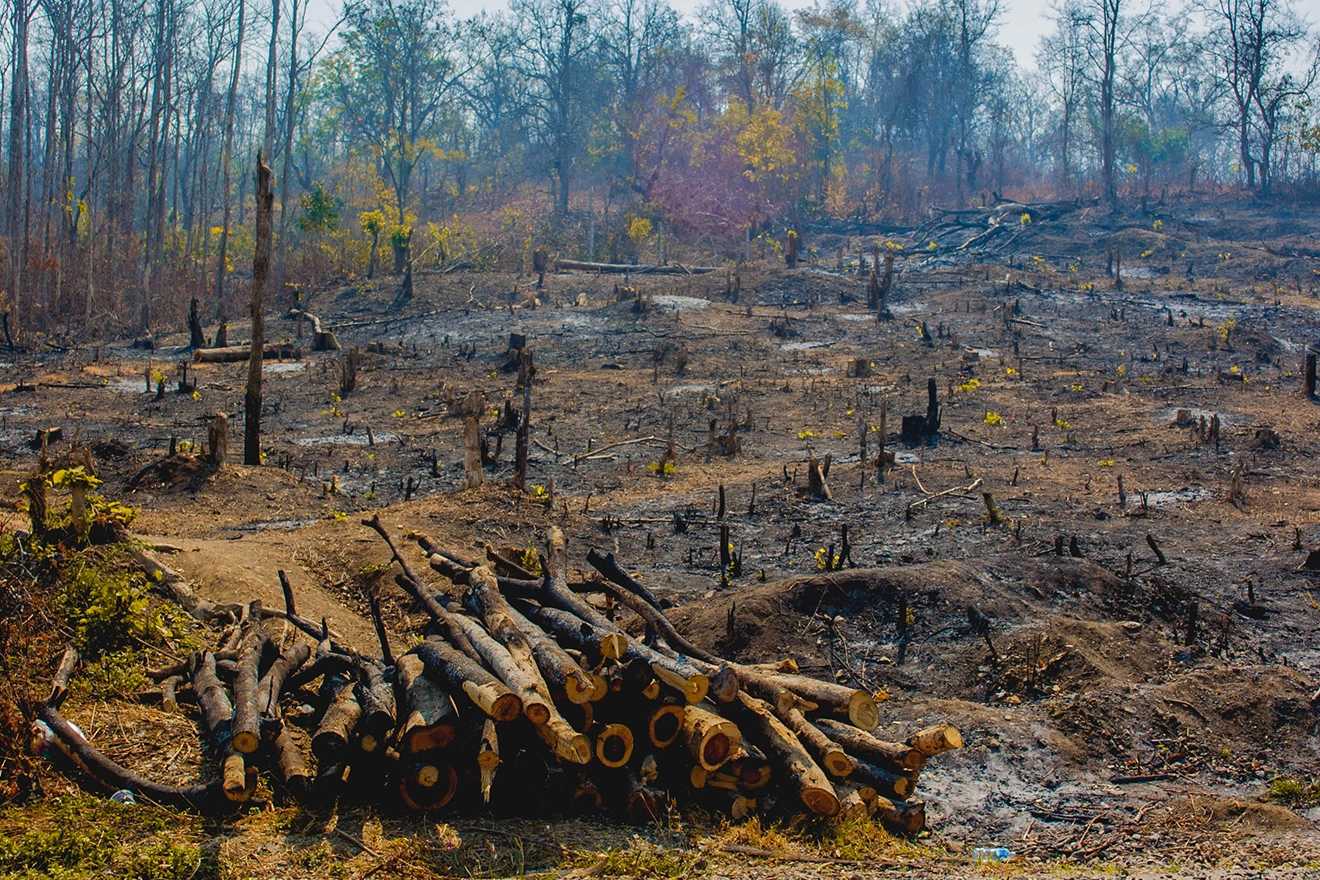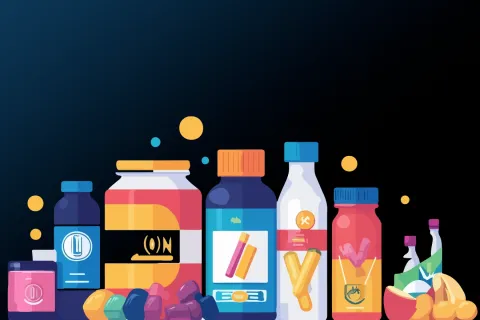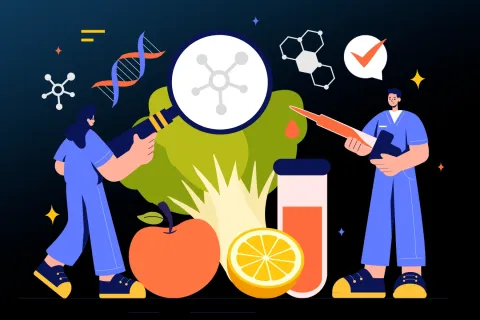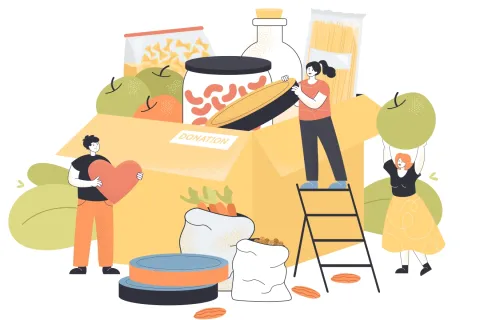
The EU Deforestation Regulation (EUDR) is a revolutionary initiative that aims to tackle one of the most serious environmental issues of our time: deforestation. With the increasing global consciousness of environmental issues, the EU Deforestation Regulation spearheads the EU's efforts within its comprehensive plan to tackle climate change and biodiversity loss.
This regulation will be especially important for those industries that also depend on agricultural products like food and dietary supplements. In this blog, we shall have a deeper look into issues regarding the EUDR: how it will work, what products will be included, what role deforestation-free supply chains will have, and the challenges and opportunities ahead.
What is the EU Deforestation Regulation (EUDR)?
EU Deforestation Regulation (EUDR) is comprehensive legislation introduced by the European Union to exclude deforestation linked to agricultural expansion. The main goal is to ensure that products sold in the EU are deforestation-free products or degradation of forests.
The regulation is designed with a view to directing a strict approach to due diligence European requirements on companies engaged in the trade of specific commodities and to eliminate the contribution of the EU to deforestation across the globe, promoting sustainable land use practices.
Timelines for Implementation
The EU Deforestation Regulation (EUDR) will enter into force on December 30, 2026. Starting from that date, businesses operating within the EU market will be required to comply with the new due diligence and reporting requirements outlined by the regulation. The date of application for micro and small enterprises is set for June 30, 2027, providing these businesses additional time to align their operations with the regulation.
On June 30, 2030, the European Commission will conduct a review of the implementation of the EUDR and its overall impact. This transition period is crucial for companies to set up their supply chains, initiate the necessary due diligence, and ensure total EUDR compliance ahead of enforcement.
Commodities Covered by the EUDR
The EUDR specifically targets commodities that have been historically linked to deforestation. These include:
- Soy: Used in many food products, animal feeds, and dietary supplements.
- Palm oil: Widely used in processed food, personal care products, and cosmetics.
- Cocoa: Required For the manufacture of chocolate and other confectioneries.
- Coffee: An internationally traded commodity with high consumer demand.
- Wood and timber: Used in construction, furniture, paper products, and packaging.
- Beef and leather: These products are frequently linked to deforestation activities in Amazonian regions.
- Rubber: A key raw material used to manufacture tires, shoes, and medical devices.
Note: Printed products (books, newspapers, magazines, journals) have been removed from scope in 2025 amendments.
The Contribution of Supply Chains Towards EUDR Compliance
Among the core components of the EUDR are transparency and accountability in the supply chain. In practical terms, deforestation-free sourcing will be required from companies importing or trading those commodities within the EU. For this to be given a firm footing, a thorough due diligence approach involving the tracing of origin for raw materials, deforestation risk assessment, and efficient risk management measures must be taken out.
The EUDR mandates businesses to develop intricate traceability systems that monitor commodities from their initial source to the finished product. The process requires the accumulation and validation of extensive Deforestation-Free Supply Chain supply chain data from initial farmers and producers through to processors and exporters. Businesses are required to keep precise documentation while submitting periodic reports which prove their compliance with EUDR standards.
Challenges Posed by the EUDR
The EUDR represents an advancement toward a more sustainable way of development. Nonetheless, it presents economic challenges to enterprises, namely those belonging to the vector of food as well as dietary supplements:
- Supply Chain Complexity: To this day, there are myriad firms running complex supply chains in global proportions, and they sometimes reach such a stage of intertwinement that obtaining precise information about relevant products and raw material origins becomes difficult. These complications represent hurdles to full compliance with the EUDR.
- Cost of Compliance: Establishing due diligence systems, tracking technologies, and third-party auditing may be extremely expensive, especially for small and medium-sized enterprises.
- Supply Chain Disruptions: Companies may have to consider switching suppliers and/or altering their sourcing and production practices if/when they open up to EUDR demands; hence, it may become susceptible to such disturbances that would otherwise cause possible delays or added logistics costs.
- Data Collection and Verification: Collecting good data on commodity receipts and verifying them as 'deforestation-free' can be hard, especially with suppliers in remote areas where transportation or infrastructures, or even minimal enforcement of the law, do not support that effort.
Requirements of the EUDR
To successfully navigate the regulatory landscape of EUDR, a company needs to comply with multiple requirements:
- Due diligence: Companies are to conduct strict due diligence to ensure that their products do not have a linkage to deforestation. The process comprises risk analyses, data collection, and risk mitigation schemes.
- Traceability: Businesses are to be able to trace back how commodities originated and provide detailed records of their supply chain implementation, guaranteeing integrity at every stage of the production process.
- Reporting: A general report that provides extensive details demonstrating compliance with the EUDR and should be submitted by the companies to the EU authorities for scrutiny, as noncompliance can lead to penalties.
- Third-party verification: In some cases, companies might require third-party verification of their due diligence processes, which adds another level of accountability.
EUDR impact on food industry
This regulation is likely to profoundly affect the food and dietary supplements industries. Major ingredients like palm oil, soy, cocoa, and coffee, which are common in these sectors, are now under severe scrutiny. Companies were expected to implement traceability systems and file due diligence statements proving that their products comply with EUDR standards by December 30, 2026.. This radical shift in regulations has caused an increase in operational expenses in terms of advanced tracking technologies, third-party audits, and possibly pricier sustainable ingredients.
However, the EUDR also shows great opportunities for corporations. Proactive corporations that align their activities with the regulation will have a good opportunity to cut their competitors short by reaching out to this enlarging cadre of environmentally sensitive customers. Companies could redeem their reputation and build customer loyalty by being able to switch to deforestation-free suppliers or reformulate their products, excluding high-risk ingredients.
How Freyr Could Help
At Freyr, we focus on regulatory compliance and provide a variety of services to help you through the EUDR maze. Our expertise includes:
- EUDR-oriented Due Diligence Training: We help in designing and fine-tuning the due diligence mechanism in order to meet the requirements of EUDR.
- Risk Assessment and Mitigation: Our experts conduct thorough and effective customer risk assessments and suggest means to mitigate such risks for your supply chain to remain strong and fully compliant.
- Compliance Reporting: We assist clients with completing and delivering their compliance reports, ensuring that both reports are accurate and comprehensive so as to properly cover any EUDR requirement.
- Training and Support: We provide training sessions to build the necessary capabilities for your team to ensure compliance, stay informed on regulatory changes, and keep their skills current.
Conclusion
Food businesses experience a major transformation in their sustainability and deforestation strategies due to the EUDR. The situation presents numerous obstacles yet simultaneously provides businesses with a platform to showcase their dedication to sustainable practices. Freyr commits to assisting you through intricate regulatory terrains. Through our multifaceted offerings in due diligence, risk assessment, compliance reporting, and training support, your business will achieve EUDR compliance while actively participating in global deforestation mitigation initiatives.
Through Freyr's specialized guidance on EUDR for dietary supplement manufacturers, regulatory standards can be established to increase their market presence in the EU while achieving competitive superiority and supporting sustainable development. This implementation demands immediate action to ready your supply chains and achieve complete conformity with this vital regulation.









